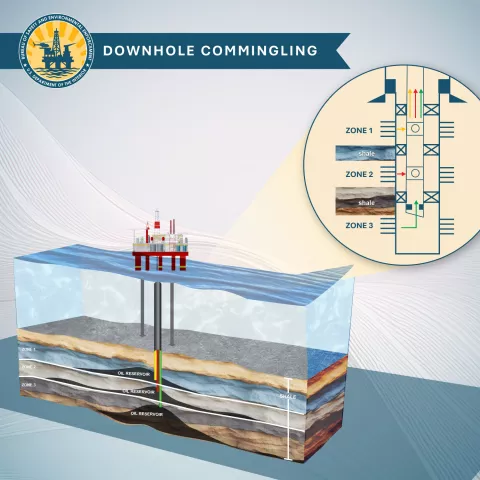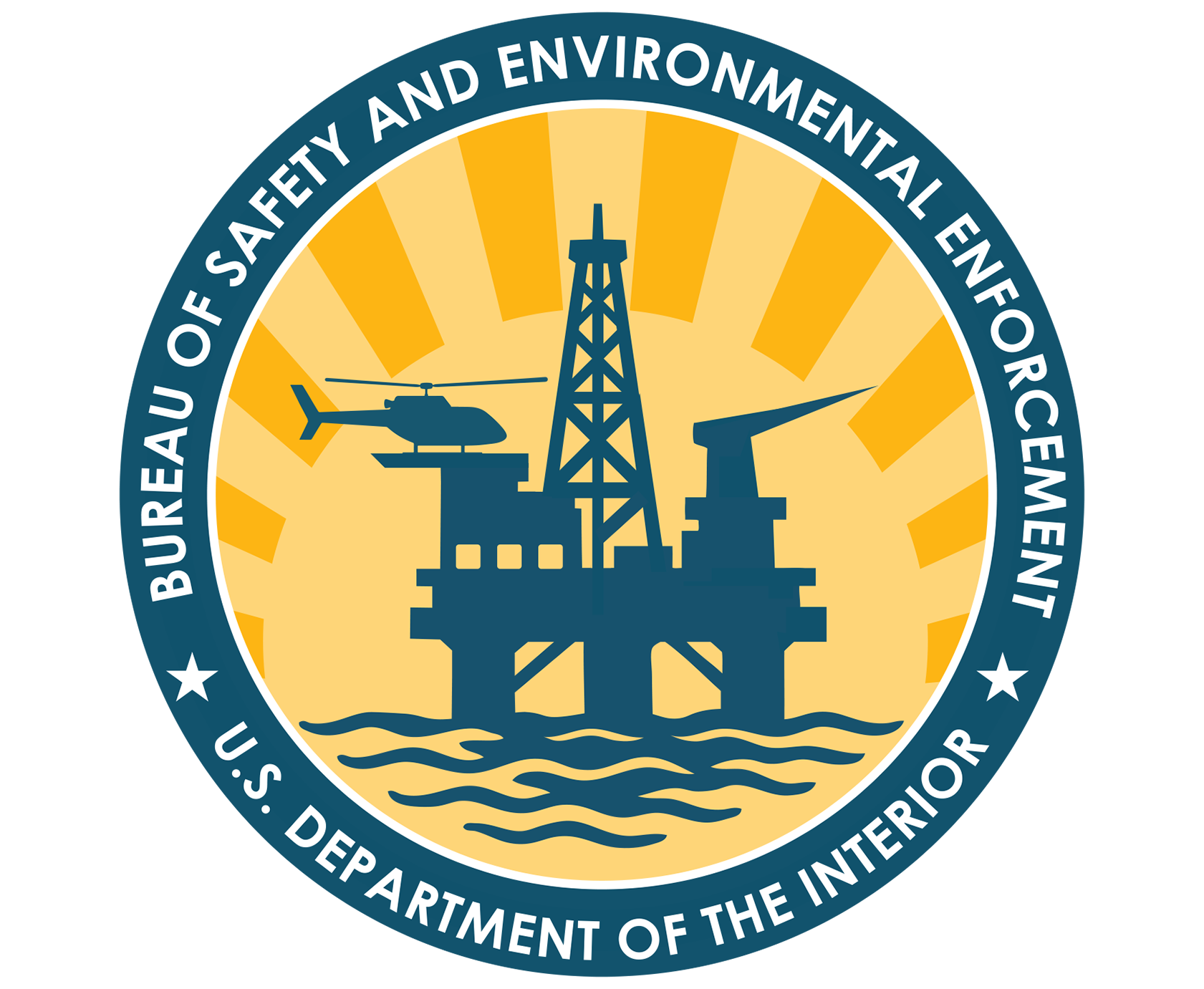
In an innovative move that will enhance the nation's energy future, the Bureau of Safety and Environmental Enforcement (BSEE) has announced a significant policy shift regarding downhole commingling (DHC) in the Gulf of America. This new policy, effective immediately, raises the allowable pressure differential for commingling production in the Paleogene (Wilcox) reservoirs from 200 psi to 1500 psi. This decision, developed in close collaboration with industry experts and grounded in the latest scientific research, is set to increase oil production, further the United States' energy independence, and create long-term benefits for American consumers.
Why Downhole Commingling Matters
Downhole commingling allows producers to extract oil and gas from multiple reservoirs through a single wellbore, eliminating the need to drill separate wells for each zone. This practice offers significant economic advantages, especially in offshore deepwater fields like the Wilcox reservoirs in the Gulf of America, where conventional development can be costly and time-consuming.
By increasing the pressure differential that can be safely allowed between commingled reservoirs, BSEE facilitates increased resource extraction, enhances the potential to recover previously inaccessible oil, and reduces operational costs. Studies indicate that, over 30 years, commingling wells recover 61% more oil compared to traditional sequential production methods while simultaneously lowering the cost of production.
This policy change aligns with President Trump's Executive Order "Unleashing American Energy," which seeks to streamline energy development by reducing unnecessary regulatory roadblocks and ensuring that U.S. energy producers can operate at their full potential. By removing the previous limitations on pressure differential, BSEE is enabling the industry to extract more oil sooner from existing wells, enhancing domestic production without the need for new leases or additional infrastructure.
The Importance of the Policy Change
This change is not just about increasing production—it's about optimizing every drop of oil in the ground while ensuring that development remains safe and sustainable. The updated policy enables a more flexible approach to managing the Wilcox reservoirs, which feature complex geological conditions, including extreme pressures and varying fluid properties. The new policy reflects current industry standards, advanced technologies, and scientific research, such as a recent study by the University of Texas, which showed that commingling increases total recovery.
The updated policy provides operators with the flexibility to increase resource recovery in these challenging reservoirs. This change is expected to boost production in the Gulf of America by approximately 10%, likely resulting in over 100,000 additional barrels of oil per day over the next decade.
"This is a major win for domestic energy,” said Kenneth C. Stevens, Principal Deputy Director of BSEE. “Thanks to the tireless work of our technical experts and industry partners, this advancement enables increased recovery from existing wells, reducing the cost per barrel and strengthening our nation's energy independence."
The policy shift is grounded in modern reservoir performance analysis, which shows that commingled production can optimize oil recovery and increase efficiency when done correctly. As a result, the new policy will enhance the competitiveness of U.S. energy producers in the global market and further reduce energy costs for American households.
Ensuring Safety and Environmental Protection
While the benefits of increased production are apparent, BSEE is also committed to maintaining the highest standards of safety and environmental stewardship. The agency's primary mission remains to ensure that energy production occurs in a way that maximizes resource recovery while minimizing risks to human safety and the environment.
The new downhole commingling policy includes stringent safeguards to protect the well integrity and prevent environmental harm. Operators must certify fluid compatibility before commingling, ensuring that hydrocarbons from different reservoirs will not react in ways that could harm well integrity or cause blockages. Operators must closely monitor pressures and regularly report on their wells' performance to identify and address any deviations from expected outcomes immediately.
Advanced monitoring technologies, such as intelligent completions, which allow for real-time control of each reservoir zone, will be encouraged when appropriate for all commingled wells. These technologies enable operators to independently monitor each reservoir's performance, ensuring that higher-pressure zones do not suppress lower-pressure ones, which could cause inefficiency or well damage. By maintaining this level of oversight, BSEE ensures that commingling will not only boost production but will also be done safely and in a manner that preserves long-term reservoir health.
“Our staff has worked diligently to adapt our policies to the unique needs of the Wilcox reservoirs,” said Bryan Domangue, Gulf of America Region Director. “This change exemplifies our commitment to maximizing production while ensuring safety and environmental protection. We are excited to support the growth of American energy with smarter, safer, and more efficient practices.”
Economic Impact and Support for American Jobs
One key benefit of the new policy is its potential to lower costs for American consumers. By increasing the amount of oil produced without requiring new infrastructure or additional drilling, the policy helps stabilize prices. It ensures that energy remains affordable for families and businesses across the nation. The expected increase in production will support thousands of jobs in the oil and gas industry and boost related sectors such as manufacturing, technology, and environmental services.
As the United States continues expanding its energy production capabilities, it strengthens its position as a global energy leader, providing a secure, reliable energy supply to domestic and international markets. This policy will also help to create a more competitive U.S. energy sector, ensuring that American companies are well-positioned to meet the growing global demand for oil.
“By delivering more oil from current operations, we're not only avoiding the costs and environmental impacts of new infrastructure; we're also setting the stage for long-term price stability and energy affordability for American households,” Stevens emphasized.
The policy change underscores BSEE's ongoing commitment to supporting U.S. energy security while creating new opportunities for job creation and economic growth in offshore oil fields.
Looking Ahead: The Future of Offshore Commingling
BSEE's efforts do not stop here. The agency has committed to fund further studies on downhole commingling, which will explore additional ways to optimize the practice and ensure it remains safe and effective. Ongoing collaboration with industry partners will continue to guide policy updates and improve operational practices across the Gulf of America.
In addition, BSEE is working to update its overall Downhole Commingling strategy to ensure that all stakeholders are involved in the ongoing dialogue about best practices. This collaborative approach will help BSEE stay ahead of industry needs and continue to drive innovation in energy production practices.
Conclusion: A Step Toward Energy Independence and Affordability
The new downhole commingling policy is a monumental step toward achieving the U.S. goal of Energy Dominance. By increasing offshore oil production, improving resource recovery, and reducing operational costs, BSEE enables operators to produce more American energy faster and more efficiently. At the same time, the agency is maintaining rigorous safety and environmental standards to protect the public and the environment.
For more information on the new policy and ongoing BSEE initiatives, visit www.bsee.gov.
